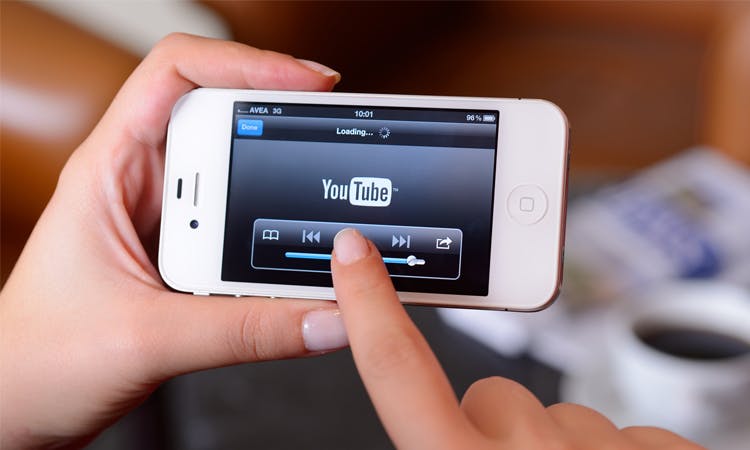
Study discovers brand building activities drive growth in digital video spending

Digital video spend sees a significant upsurge as brand building activities take center stage in driving growth Marketers prioritize digital video ads, leading to a 5% surge in ad spend during the first half of the year
Brands across various sectors, including retail, FMCG, and financial services, are increasingly leveraging digital video advertising to strengthen their brand presence.
In fact, according to the half-year digital adspend update by IAB UK and PwC, digital video has played a significant role in maintaining the stability of digital ad spend in the face of overall market fluctuations over the past six months.
Investment in digital advertising showed a 5% total growth, even with inflation. Notably, video ad spending experienced the highest growth rate at 11% year on year. Currently, digital video accounts for 25% of the entire market and 61% of Display spend.
This increase in ad spend aligns with user consumption patterns, as revealed by Ofcom's Media Nations report. The report indicates that over one-third of UK adults watch short-form online videos on a daily basis, with the percentage rising to 68% among individuals aged 15 to 24.
Coca-Cola's media spend on digital channels has surged, with over 60% of the total allocated towards them. This marks a significant rise from the 30% allocation in 2019 and reflects the company's focus on connecting with Gen Z consumers. The growing popularity of platforms like TikTok, Snapchat, and YouTube, particularly in terms of short-form video content, aligns with the increased preference for digital channels among younger audiences.
Since its launch in 2022, YouTube has highlighted Shorts as an essential component of its advertising strategy, particularly for reaching a wider audience through video campaigns. In March of this year, YouTube announced that Shorts would be included in their broader video reach campaigns, further emphasizing its importance to advertisers.
According to Jon Mew, CEO of IAB UK, the growing prominence of video ads is contributing to the stability of the digital advertising market. Advertisers are recognizing the potential of digital channels to enhance their campaigns and produce enduring results, leading to a significant investment in video advertising.
Due to the overall increase in spend, the UK’s digital ad market attracted £13.8bn of investment in the first six months of 2023.
Digital brand building
According to the IAB data, there is evidence that marketers are increasingly using digital channels for brand-building. In June, over 86.7% of the brand-side marketers who participated in Our Website's Language of Effectiveness survey stated that digital channels are effective for brand building. This is higher than the 80.1% of respondents who believed that offline media is effective for brand building.
The shift towards digital channels as a tool for brand building, which has historically been associated with short-term success, can be attributed to the ease of measuring effectiveness online. The Language of Effectiveness study found that 71.8% of marketers surveyed believe it is easy to measure the effectiveness of a digital campaign, compared to only 38.1% who said the same about offline campaigns.
Tom Roach, VP of brand strategy and media agency Jellyfish, describes mobile video as the catalyst for brand building. He likens video to the essentiality of water for life on earth. More video content leads to increased attention, stronger emotional impact, and at times, a more intimate and focused viewing experience than on larger, more public screens. The IAB/PwC report supports this notion, as it reveals a 9% growth in expenditure on mobile ads while non-mobile formats remained stagnant.
However, some marketers argue that the increasing popularity of ad-supported video-on-demand platforms is distorting people's perception of the effectiveness of digital video. Professor Karen Nelson-Field from Amplified Intelligence, for instance, shared with Our Website earlier this year that ads require a minimum of 2.5 seconds of viewers' attention to lay the foundation for brand recognition.
Nevertheless, certain short-form video ads surpass this threshold due to adhering to best practices tailored to specific platforms. The most recent study on advertising effectiveness by The Works revealed that a video ad specifically designed for Facebook, complete with captions, could engage and maintain viewers' attention for a duration of four seconds.
Meanwhile, NatWest's group head of social media marketing, Robert Anderson, disclosed that they are utilizing short-form videos on TikTok not only to enhance their brand but also to drive conversions. He believes that these channels can effectively influence brand metrics in a positive way, just like traditional TV or other advertising methods.
Despite the increasing significance of digital video, search ads remain the dominant investment in advertising, accounting for 50% of the overall market. This category experienced a 5% growth compared to the previous year, with a total investment of nearly £7bn in the first six months of 2023. This reflects the acknowledgement that digital platforms are capable of supporting both short- and long-term marketing strategies.








